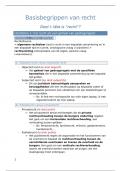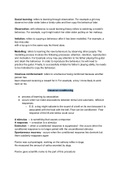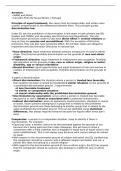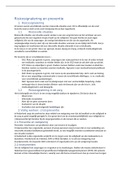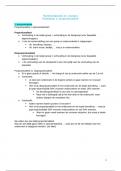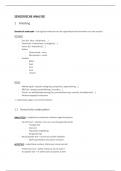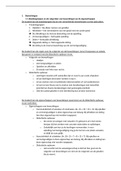How is madness presented in King Lear?
The story of Shakespeare’s ‘King Lear,’ portrays the Lear’s downward spiral after he hands parts of
his kingdom away to those who have ulterior motives against him. In doing so, Shakespeare’s play
follows the eponymous’ character descent into madness, leading up to Lear’s inevitable death. He
presents how madness in characters, specifically Lear, can lead to insight. From this, Shakespeare
also explores how madness acts as a form of protection for characters such as Edgar, who takes on
the role of a madman to avoid persecution. Finally, Shakespeare attributes the cause of madness to
family betrayal, creating a cautionary tale about the consequence of misplaced loyalty.
In King Lear, madness in characters, specifically Lear, leads to insight. Shakespeare does this in order
to covertly present his opinions on society, meaning madness in characters arguably acts as a safety
net for Shakespeare to reflect his societal criticisms. A scene where this is especially prevalent is the
hovel, wherein Lear remarks that he has, “ta’en/ Too little care of,” the “houseless heads and unfed
sides,” in his kingdom, referring to them as, “Poor naked wretches.” Here, Shakespeare uses a
rhetorical question when Lear asks, "How shall your houseless heads and unfed sides (...) defend
you?" which serves to emphasize Lear's realization of his own neglect and indifference towards their
plight. For a 1606 audience, though this was a result of his developing madness, this empathy may
have been perceived as an admirable trait, which is heightened by the Tudor concept of Noblesse
Oblige, which referred to the unwritten obligation of people from a noble ancestry to act honourably
and generously to others. This is further emphasised by Shakespeare’s use of aspirant alliteration in
the phrase, “houseless heads,” which supplies Lear with a gentle, soft tone as he discusses the plight
of said people in his kingdom, displaying his newfound empathy for them as a result of his
experience in the storm. The gentle and soft tone Lear utilises whilst discussing the poor is displayed
in the imagery Shakespeare provides by opening this passage with, “Poor naked wretches,” which
highlights Lear’s awareness of the vulnerability of the poor people in his kingdom. With this in mind,
Shakespeare may presented have Lear’s madness in this way that inadvertently, or purposely,
presents him as compassionate to the audience. Walsh (2002) contends this, claiming that, “the
onset of madness and an increased social perception and concern are closely identified in Lear.”
Therefore, he supports that Shakespeare develops the argument that madness can bring one great
clarity and insight, where Lear’s experience in the storm have brought him greater empathy for his
subjects—the exact quality that is necessary for any accomplished ruler. On the other hand, whilst
Mack claims that madness does lead to insight, he also argues that Lear's madness acts as a form of
punishment. Though this is certainly true due to the nature of Lear’s madness stemming from the
mistakes he made as a monarch, contextually, the impact of monarchical compassion for the poor
like Lear’s in the hovel scene may outweigh Mack’s contention. For example, Elizabeth, who died
only three years prior the first performance of King Lear in 1606, was highly popular amongst her
subjects and was very successful in aiding the poor during her reign. The Elizabethan Poor Laws in
1601 filled the gap left by Henry VIII’s dissolution of the monasteries and provided aid to the poor in
England. In writing Lear suddenly making social remarks about the state of his country, Shakespeare
may have pandered to the audience’s grief towards Elizabeth’s death.
In King Lear, madness acts as a form of protection for characters such as Edgar, Gloucester and Lear
in order for Shakespeare to show the harsh realities of a world characterized by injustice, cruelty,
and betrayal. Madness becomes a metaphor for the ways in which individuals cope with and
respond to the moral and social decay around them. For example, Edgar takes on the role of a

